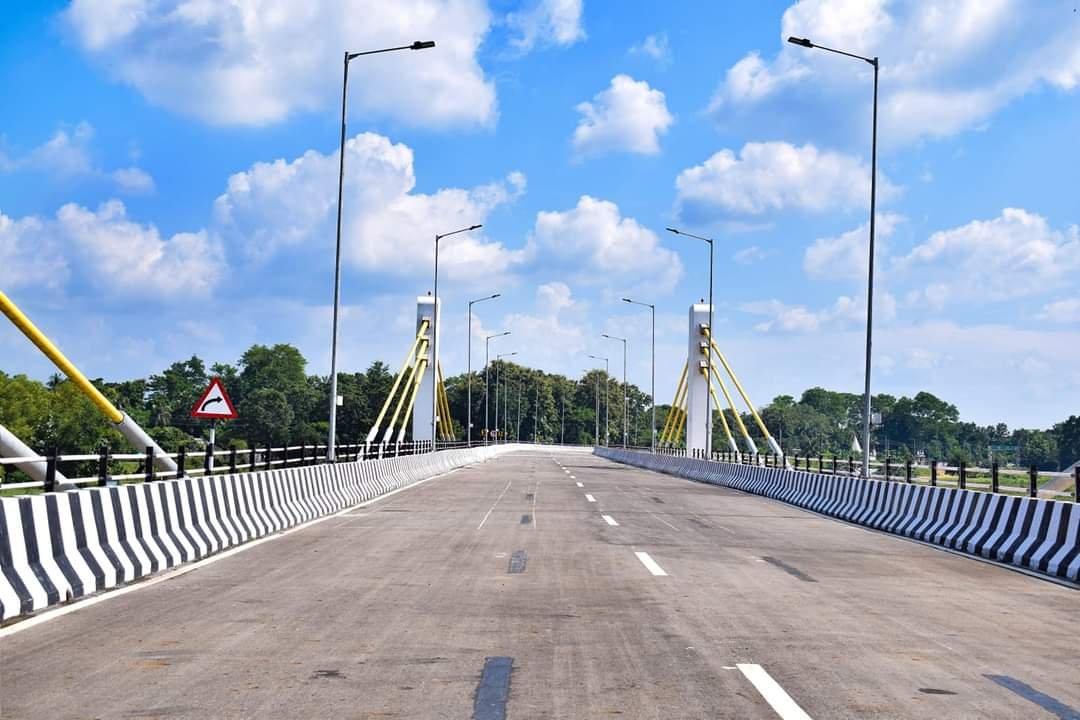Agartala, May 20, 2025: The much-celebrated Maitree Bridge over the Feni River in Sabroom, meant to symbolize Indo-Bangladesh friendship and regional economic integration has become the latest casualty of shifting political winds in Dhaka. Built with an investment of Rs 500 crore from the Indian government and inaugurated virtually by the Prime Ministers of both countries, the bridge now stands idle, its promise stalled by political hesitation and diplomatic tensions.
“Friendship cannot thrive if seen only through the lens of politics. The Maitree Bridge was envisioned as a gateway to shared prosperity, not as a pawn in regional power games,” said a senior official from India’s Ministry of External Affairs
Initially intended to connect India’s northeastern states with the Chittagong port in Bangladesh, the bridge was expected to operationalize trade and passenger movement from August 14, 2024. A total of Rs 1,000 crore had also been invested in supporting infrastructure—land acquisition, customs buildings, and connecting highways.
However, following the change in government in Bangladesh on August 5, 2024, the caretaker administration allegedly influenced by Jamaat-e-Islami and pro-Pakistan factions halted the launch of trade activities via the Sabroom-Ramgarh corridor. Bangladesh has since announced a review committee to “assess national benefits,” a move India perceives as a diplomatic affront.
“The suspension is not merely an economic decision—it undermines years of bilateral cooperation. Dhaka’s current stance is being read in Delhi as a shift from cooperation to confrontation,” said an Indian trade analyst based in Agartala.
Ironically, Bangladesh stood to gain significantly. Transit fees, customs duties, and handling charges were projected to generate Rs 200–250 crore annually. The expected influx of Indian cargo via Chittagong would have boosted port utilization and attracted foreign investments to adjacent economic zones. Additionally, the project could have created nearly 10,000 direct and indirect jobs in sectors such as logistics, security, and warehousing.
Local voices in Sabroom remain optimistic. “If we could trade with Pakistan after Kargil, why not now with Bangladesh?” asked a trader in the border town. Elder residents recalled India’s humanitarian gesture during the Chakma refugee crisis in the 1980s and expressed hope that “peace and pragmatism will return.”
In response to the policy shift, Indian officials have reportedly hardened their stance. “If our goodwill is mistaken for weakness, Bangladesh must now be prepared to bear the consequences,” an official source in Delhi noted, adding that India may cease allowing free access to its infrastructure unless reciprocity is guaranteed.
The Maitree Bridge, once hailed as a triumph of regional diplomacy, today stands as a reminder of how swiftly political currents can upend shared dreams. As South Asia moves towards greater connectivity, the breakdown in Indo-Bangladeshi cooperation over this bridge represents a setback—not just for two nations, but for the entire subcontinent’s pursuit of collective progress.
